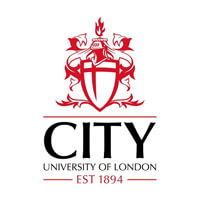fees waived
Computer Science with Games Technology, BSc (Hons), with industry placement
City, University of London, United Kingdom
Subject ranking
UK / THE 2025 30th
UK / CUG 2024 37th
UK / Guardian 2025 38th
Costs
food & rentS$25.1K / year
Entry requirements
Scholarships
Limited quantity
Information
Code
Intakes
Website (External)
Programmes
Information
Duration
2029
This BSc in Computer Science with Games Technology prepares students for dynamic careers in the computer games industry by building expertise in game development, programming, and computer graphics. Accredited by BCS and TIGA, the program covers core topics like algorithms, Java, C++, and advanced areas such as games technology and AI, fostering problem-solving skills through individual and team projects. An optional placement year with companies like Sony and Microsoft provides real-world experience.The curriculum includes modules across three years, starting with foundational computing concepts and progressing to specialized electives. Assessment combines examinations and coursework, emphasizing practical applications to enhance employability in roles like game developers or technical architects.
During your Computer Science with Games Technology BSc degree you will work individually and in groups, developing creativity and problem-solving skills in response to real-world computing problems. Year 1 Study our common first year for all our computer science students, learning six core topics including operating systems, web development and Java. -Introduction to Algorithms (15 Credits) -Mathematics for Computing (15 Credits) -Systems Architecture (15 Credits) -Programming in Java (30 Credits) -Databases (15 Credits) -Operating Systems (15 Credits) -Computer Science, Ethics & Society (15 credits) Year 2 Deepen your knowledge of computer science with core modules such as games technology and object-orientated analysis. Boost your professional skills with a team project. -Data Structures and Algorithms (15 Credits) -Object-Oriented Analysis and Design (15 Credits) -Professional Development in IT (15 Credits) -Team Project (30 Credits) -Games Technology (15 Credits) -Programming in C++ (15 Credits) -Work Based Project (30 Credits) -Continuing Professional Development in IT (15 Credits) -Computer Networks (15 Credits) Year 3 Study advanced games technology and choose from a wide range of elective modules – including computer graphics and introduction to AI – to tailor your course to your future career plans. -Individual Project (45 Credits) -Advanced Games Technology (15 Credits) -Language Processors (15 Credits) -Advanced Databases (15 Credits) -Computer Graphics (15 Credits) -Theory of Computation (15 Credits) -Professional Experience (Placement) Placement Reports (30 Credits) -Data Visualization (15 Credits) -Digital Signal Processing and Audio Programming (15 Credits) -Advanced Programming - Concurrency (15 Credits) -Functional Programming (15 Credits) -Cloud Computing (15 Credits) -Information Security Fundamentals (15 Credits) -Computer Vision (15 Credits) -Introduction to Artificial Intelligence (15 Credits) -Programming and Mathematics for AI (15 Credits) -Agents and Multi Agents Systems (15 Credits) -User Centred Systems (15 Credits) -Semantic Web Technologies and Knowledge Graphs (15 credits) -Project Management (15 credits) Students have the opportunity to follow two placement routes: a one year placement or the Professional Pathway scheme. The one year placement can be undertaken following successful completion of year 2. Students can join the Professional Pathway scheme after successful completion of year 1 (early entry) or after successful completion of year 2 or a one year placement (late entry).

